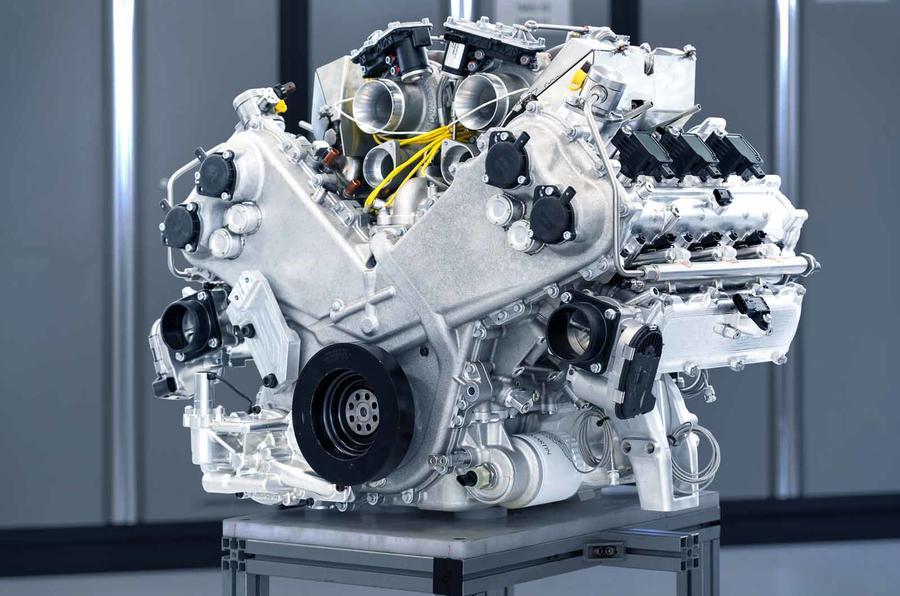Hybridised six-cylinder unit was set to debut in Valhalla, but AMG partnership could make it redundant.
Aston Martin is likely to end development of its bespoke V6 hybrid powertrain in favour of Mercedes-AMG-sourced units for its future models.
Aston Martin CEO Tobias Moers said in an investor call today that new technical partner Mercedes-Benz is offering to supply the British firm with powertrain components for a “reasonable cost” and suggested that the arrangement could change the shape of its future product strategy.
The mid-engined Valhalla supercar, previewed by a concept at the 2019 Geneva motor show and due for launch in 2023, is being heavily revised as a result, with a new version set to be shown in the next four months. Its electrified V6, developed in-house by Aston Martin with the aim of “rapidly” rolling it out across the line-up, looks to have now been rendered redundant.
After making its debut in the Valhalla, the Aston Martin V6 was set to replace AMG’s 4.0-litre V8 in the Vantage before being added to the DBX SUV range and an entry-level variant of the DB11 grand tourer.
Previous Aston Martin CEO Andy Palmer had expressed concerns that Mercedes-AMG’s range-wide engine downsizing didn’t fit with the British marque’s plans, necessitating the development of a bespoke V6. “Mercedes have made no secret of where their engine technology is moving to, and obviously we don’t foresee four-cylinder engines in our Astons,” he said in 2020.
Now, however, Palmer’s successor has hinted that the hybridisation of AMG’s larger powerplants presents new opportunities for Aston Martin, so there’s no longer a place for the bespoke V6 in the line-up. “With the transformational technology agreement with Mercedes-Benz, there are other chances for us regarding combustion engines, but we still have an electrified drivetrain,” Moers said.
It’s unclear whether the electrified twin-turbocharged V8 used in the upcoming Mercedes-AMG GT 73e 4dr Coupe and S73e would work for the much more compact and mid-engined Valhalla, but further details will be offered when the final production version is shown at the end of spring.
Palmer had hinted that Aston Martin’s V6 would be more powerful than AMG’s V8, but with the GT 73e and S73e tipped to offer upwards of 800bhp, courtesy of the boost from a 150kW electric motor, it would likely have fallen short.
It remains unclear what the V6’s cancellation would mean for Aston Martin’s financial plans and workforce, as it had been planned for an unspecified external supplier to build the new engine.
Despite the implied shift away from bespoke powertrains, it remains unlikely that Aston Martin will make use of the electrified four-cylinder engine that will power the next-generation Mercedes-AMG C63 in place of the current car’s V8, irrespective of output.
Felix Page




